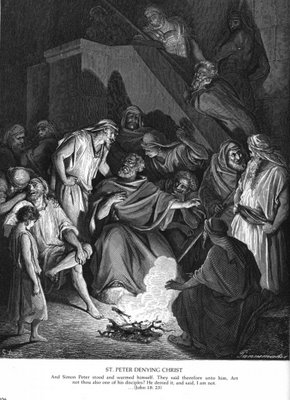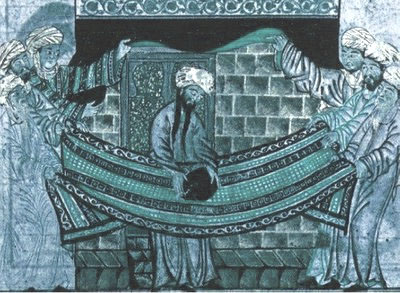The SF Bay Area is a good place for those who enjoy trading their wages for palatable art and entertainment, but those who really desire the cutting edge—we head to Fresno.
Barry Smith (photo by Mark Fox)
Now I understand that the book Science Made Stupid defines half-life as “Saturday night in Fresno”, and yes, there was something in there about Fresno and the event horizon of a black hole, but hey, times have changed!
I had run into Barry Smith on the aether a couple years ago, and just last Thursday I was cleaning out one of my email boxes when I stumbled on the remnants of our brief correspondence. I wandered onto the web and browsed through his tour schedule: coming to Fresno—tomorrow!
Coincidence? You be the judge.
I had six hours to drive to Fresno and back and catch Barry Smith’s show Jesus in Montana in between. I’d be locked out if I got there a minute late, so I left San Jose hoping that the 2 1/2 hour drive would not be extended to 3 hours by some unforeseen calamity (as it often is).
I turns out I arrived with time to spare, so I ran down Olive Avenue, wolfed down half a California burger, ran back to the Starline and dropped the price of admission out of my wallet onto the table. I had finally made it. I stumbled into the dark club, felt around for a chair, and basked in the glow of anticipation.
It was certainly therapeutic to sit in the dark laughing in unison with total strangers about a Baha’i doomsday cult, but what was perhaps just as exhilarating was re-living the grand chase for prophecy and universal annihilation that Barry Smith so hilariously describes in his expertly timed PowerPoint presentation.
This is not just any PowerPoint doomsayer. Move over Al Gore.
Barry Smith sees prophecy in the most mundane source material. He even finds Jesus in a street address from his childhood. Ludicrous, eh? Maybe so, but it’s not as uncommon as you may think, and you might want to try it some time. It can bring on quite a buzz.
I have been there. As a young Baha’i, I studied Biblical prophecy, American Indian prophecy, Hindu prophecy, Zoroastrian prophecy, Tibetan prophecy, Nostradamus, blah blah, but I never quite grasped the “Paul is dead” scandal; not, at least, until now.
Perhaps Barry Smith is having fun at the expense of others, but as much as anything, he is poking fun at himself. Perhaps that is the most therapeutic aspect of the whole show.
This must be made available on DVD someday. Come on Barry: if Al could do it, so can you.
A few notes for Baha’is …
I should warn you that “Jesus in Montana” has been rated “R” by—er, Barry?—for foul language, and references to drugs, Armageddon, fornication, religion, and one particular sex offender; but it isn’t all that hard on the Baha’i Faith.
Barry Smith goes so far as to say that, as part of the Baha’i doctrine of progressive revelation, prophecy is the way that God tells us how to recognize the Manifestations. I’m not sure that I’ve ever heard it put that way before, but that seems to be the way a lot of Baha’is look at it. One might call it the “Thief in the Night” wing of the Baha’i Faith.
I understand that Baha’is of the dominant Haifan group are strongly advised to avoid any discussion of the sect that Barry Smith has so much fun with, but it seems to me there is little to fear. Smith pokes fun particularly at the minute size of the BUPC, and estimates, quite charitably, the total number of Baha’is at seven million. He does poke a little fun at progressive revelation, but in a good-natured way. Moses, for instance, taught us not to eat paste, and Jesus taught us how to write in cursive.
Disclosure
Yes, it is true that, like the cult leader that Barry Smith celebrates, I too am a Jensen, and yes my father is a Baha’i Chiropractor, and it’s true that he has been expecting Armageddon since he first read the Scriptures and the pilgrim notes; but that is where the similarities end. Well, my mother was born in Montana. Oh, and there was that guy named Barry who lived in our basement. Hmmm … maybe I didn’t actually grow up in California …



